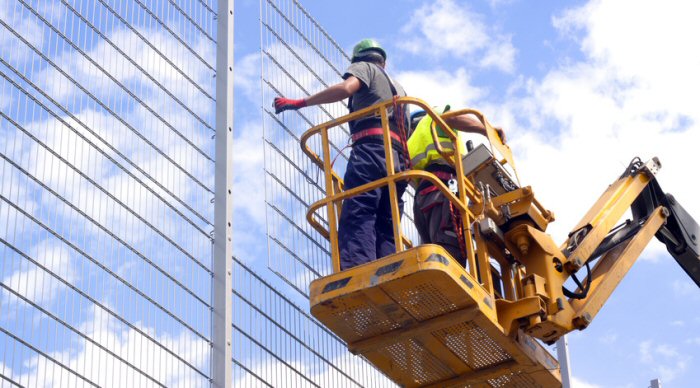
Working at height safety infringements will be prosecuted
Employers all know that the safety of their workforce is their responsibility and that infringements of regulations will be prosecuted but even so it is remarkable how often this is ignored. Perhaps more remarkable is that some employers, even after being served Prohibition Notices in respect of certain bad and dangerous practices still continue to infringe the relevant legislation. Workers often feel they have no option but to work in the conditions which prevail in the workplace and this is a shame, because there are ways of reporting law breaking which are laid out in the HSE (Health and Safety Executive) poster which must be displayed prominently in all places of work.
Inspections can take place at any time
A recent case in South London proves that employers cannot rely on not being found out when they ask employees to work unsafely. An inspector was on his way to work and spotted, from his train, workers on the third floor of a construction project working with no safety aids whatsoever in the way of harnesses, scaffolding towers or safety rails. He immediately got off at the next station, walked back to the site and issued a Prohibition Notice. The contractor ignored the notice however and workers continued to work at height with no safety precautions. The same inspector was amazed to see the work continuing with no improvements made and the contractor was fined £16,000 plus £1,200 costs after pleading guilty to single breaches of the Work at Height Regulations 2005 and the Construction (Design and Management) Regulations 2007.
Safety should always come first
Working at height training is something that should never be taken lightly. It accounts for a huge proportion of the deaths and serious injuries in the workplace every year and this is no real surprise. Falling even from a first floor level is likely to be fatal, especially given the rough ground conditions on most construction sites. Safety in these conditions is so easy to achieve that it really is criminal that precautions are not taken, but usually it is cost implications that drive the decisions, rather than common sense. If all employers bore in mind that the fines are substantial if they are found out to be in breach of regulations, perhaps they would be more careful.
Training courses are the cheapest way of ensuring staff are safe because they provide all workers and their managers with the tools to risk assess and improve safety for themselves and colleagues. There is obviously a cost implication in buying safety equipment, but once bought, it is always available and health and safety courses will also show staff how to maintain and erect towers and safety rails, so the equipment will last a long time as well as potentially saving lives. There can be no cost put on a human life but sometimes the bottom line is seen to be more important. However, with large fines in the offing for those in breach of regulations, skimping on training and equipment seems to be a foolish economy.